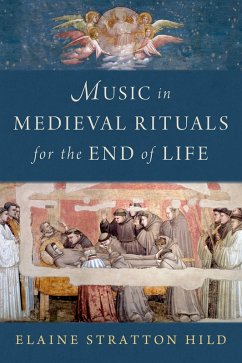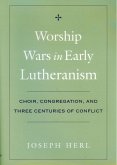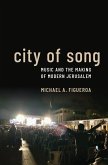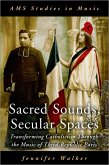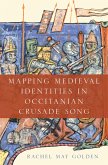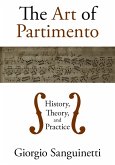For centuries of European history, singing for a person at the moment of death was considered to be the ideal accompaniment to a life's ending. In Music in Medieval Rituals for the End of Life, author Elaine Stratton Hild examines and recovers the chants sung for the dying during the Middle Ages, beginning in the late eighth century. Along with the first editions of these melodies, she offers considerations of the functions that music played within the deathbed rituals, arguing that the chants served as vehicles with which communities offered comfort to a dying person. The book presents close readings of rituals from diverse communities, each as they appear in a single source. The rituals' chants are transcribed into modern notation and analyzed, both for their text-music relationships and for their functions within the rituals. Hild shows that within the widespread practice, local versions of the liturgies--along with their chant repertories--remained unstandardized throughout the Middle Ages. Yet some commonalities are evident among these varied local practices. One is the use of song. Beginning in the ninth century, sources most often prescribe chant, not the Eucharist, for the final moments of life. Another commonality is the positive depiction of the afterlife conveyed by the chants. Created for the powerful and the poor, the educated and the uneducated, women and men, monastics, clerics, and laity, these manuscripts offer a glimpse into the religious practices that distinguished communities from one another and also bound them together within a single tradition.
Dieser Download kann aus rechtlichen Gründen nur mit Rechnungsadresse in A, B, BG, CY, CZ, D, DK, EW, E, FIN, F, GR, HR, H, IRL, I, LT, L, LR, M, NL, PL, P, R, S, SLO, SK ausgeliefert werden.

